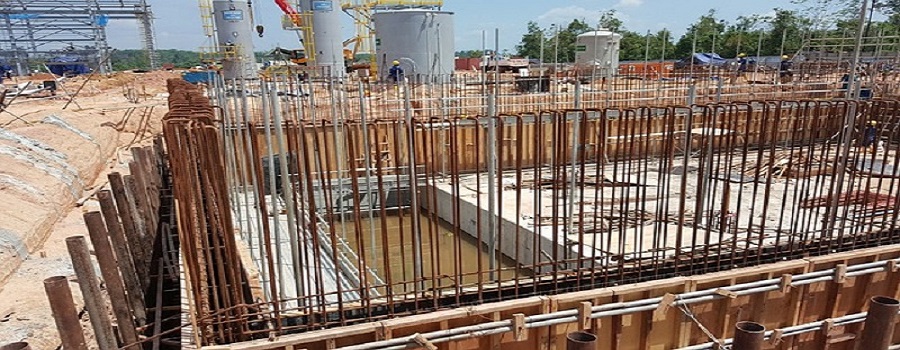Special Offers




Special Offers





Foundations in home construction provide structural support and distribute the building's load to the ground. Common types include slab, which is a solid, flat concrete surface; crawl space, elevated with limited access underneath; and basement, a full below-ground level. Each type serves specific needs, considering soil conditions, climate, and building requirements. Importance of Foundation in Home Construction: In India, the importance of a strong foundation in home construction cannot be overstated. The diverse soil conditions, seismic activity, and varying climatic conditions make a robust foundation crucial. It ensures structural stability, minimizes the risk of settling or shifting, and enhances the building's resilience to earthquakes, floods, and other environmental challenges, providing long-term durability and safety. Building a Strong Foundation: Essential Considerations for Home Construction in India When embarking on the journey of home construction in India, the choice of foundation plays a pivotal role in ensuring the longevity and stability of the structure. Several foundation types cater to diverse soil conditions prevalent across the country. The most common foundation types include the slab foundation, ideal for stable soil; the crawl space foundation, suitable for areas with high water tables; and the basement foundation, often chosen in colder climates. Each type demands careful consideration based on the specific geographical and environmental factors of the construction site. The soil composition is a critical factor influencing foundation decisions. India's soil diversity, ranging from expansive clay to loose sand, necessitates a thorough soil analysis. Understanding the load-bearing capacity and potential for settlement helps determine the most appropriate foundation type. Seismic activity is another vital consideration, particularly in regions prone to earthquakes. Engineers must design foundations that can withstand ground movements, ensuring the safety and resilience of the structure during seismic events. Climate also plays a role, with factors like heavy monsoons in certain regions requiring effective drainage solutions to prevent waterlogging and soil erosion around the foundation. Furthermore, adherence to local building codes and regulations is imperative. India has specific guidelines that dictate foundation design and construction practices to ensure safety and compliance. FAQs for Foundation in Home Construction: 1. **Which foundation type is best suited for my construction site in India?** - The ideal foundation depends on various factors such as soil composition, climate, and seismic activity. A soil analysis and consultation with a structural engineer can help determine the most suitable option for your specific location. 2. **How does seismic activity impact the choice of foundation in India?** - India is prone to seismic events, and it's crucial to choose a foundation that can withstand ground movements during earthquakes. Engineers consider factors like soil liquefaction and design foundations to enhance the structure's resilience in seismic zones. 3. **What are the considerations for building a foundation in regions with high water tables, like coastal areas?** - In areas with high water tables, crawl space foundations are often preferred. Adequate waterproofing and drainage solutions become essential to prevent water damage. Proper elevation and insulation also help protect the structure from moisture-related issues. 4. **Do building codes in India specify particular foundation requirements?** - Yes, Indian building codes outline specific guidelines for foundation design and construction. It's essential to adhere to these codes to ensure the structural integrity and safety of the building. Consulting with a local architect or engineer familiar with these codes is advisable. 5. **How can I ensure my foundation is environmentally sustainable in the context of Indian construction practices?** - Sustainable foundation practices in India involve using locally sourced materials, incorporating efficient drainage systems, and considering passive design strategies. Consulting with architects experienced in eco-friendly construction can help strike a balance between structural stability and environmental responsibility. Conclusion: In summary, choosing the right foundation for home construction in India demands a comprehensive understanding of the soil, seismic conditions, climate, and adherence to regulatory standards. A well-designed foundation not only provides structural integrity but also ensures the safety and durability of homes in the face of diverse environmental challenges.